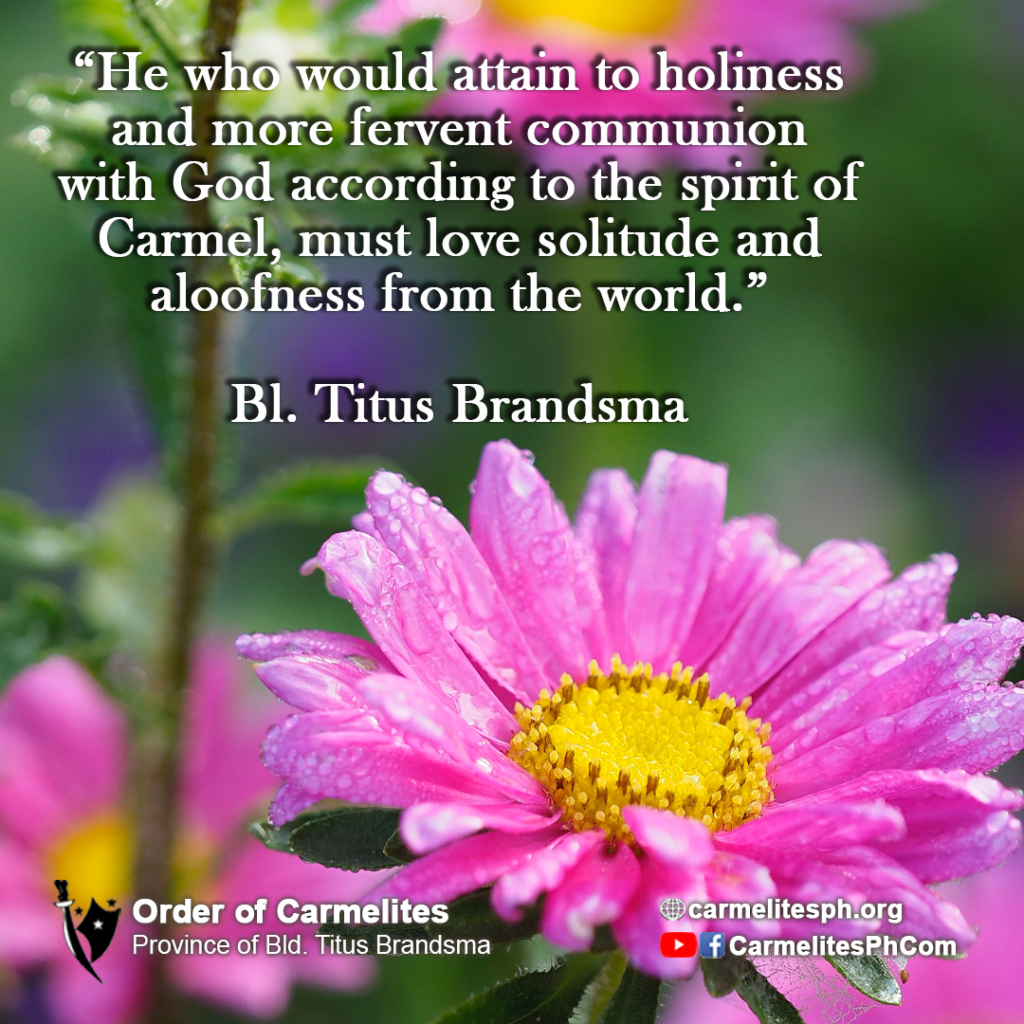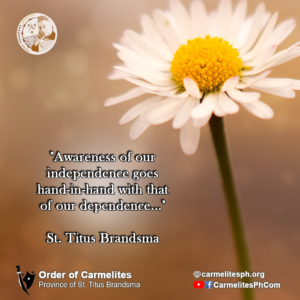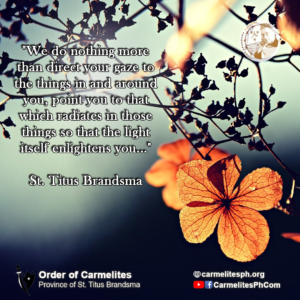
“These two documents (Rule and Institutio Primorum Monachorum) are remarkably alike in spirit and in the points they emphasize. Both would regard prayer as essential life of the Order and they agree in the provision they lay down for its preservation. The ideal they place before the early monks is one of solitude and detachment from the world, as a condition and safeguard for the life of prayer. Their dwelling places are to be in the deserts, apart from the busy life of the world. These places are recommended as most fitting to their seclusion, but aloofness from the world may also be achieved in conditions less remote from the world’s busy life. But the Rule demands that the cloister must ever be a cloister and its provisions guarantee that atmosphere of peace and quiet in which the spirit may commune with God. Each one must have a separate cell, which the Rule regards as the individual’s own particular sanctuary and others may not enter except for grave reasons. The cell is regarded as a place for personal devotion and intimate prayer. All the constitutions drawn up at different times have laid definite and particular emphasis on the cell as the sanctuary of the individual soul. St. Mary Magdalene de Pazzi used to kiss the walls of her cell, while she repeated the words ascribed to St. Bernard: O blessed solitude, O my salvation. O beata solitudo, O sola beatitudo. In Carmel there are no common dormitories and work is not done in common when it is possible to do it alone. When necessary, there is a common workshop, but the Rule insists that the work be done in silence. On the other hand, there are places where community life prevails. There is a common refectory and a common room for recreation. With these exceptions, life is lived as far as possible in the retirement of the cell. He who would attain to holiness and more fervent communion with God according to the spirit of Carmel, must love solitude and aloofness from the world. It is a peculiarity of the Carmelite Order that although one of the Mendicant Orders, living amongst people in the world and engaged in active life, it retains the great the greatest love for solitude and aloofness from the world and considers solitude and contemplation as the better part of its spiritual life.”
Bl. Titus Brandsma
What do you think of this quote? Write it on the comment section.
📸 Richard Loader | Unsplash


